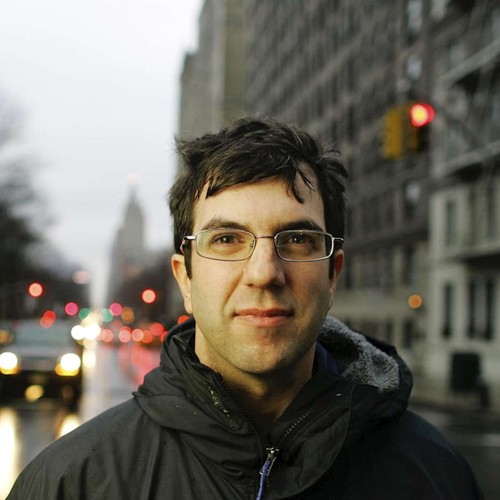
 80,000 Hours Podcast
80,000 Hours Podcast #79 Classic episode - A.J. Jacobs on radical honesty, following the whole Bible, and reframing global problems as puzzles
Radical Honesty Fail
- AJ Jacobs tried radical honesty, telling his wife's friends he had no interest in seeing them again.
- This caused awkwardness and anger, showing unfiltered honesty isn't always best.
Honesty Strategies
- Be honest about mistakes and express positive emotions more often.
- Sometimes, being upfront about unwanted tasks is kinder in the long run.
Ice Cream Honesty
- Kieran Harris ordered ice cream for himself and his girlfriend; she got two scoops, he only got one.
- Thanks to honesty agreement, he asked her about it and resolved a potential conflict.
































Today’s guest, New York Times bestselling author A.J. Jacobs, always hated Judge Judy. But after he found out that she was his seventh cousin, he thought, "You know what, she's not so bad".
Hijacking this bias towards family and trying to broaden it to everyone led to his three-year adventure to help build the biggest family tree in history.
He’s also spent months saying whatever was on his mind, tried to become the healthiest person in the world, read 33,000 pages of facts, spent a year following the Bible literally, thanked everyone involved in making his morning cup of coffee, and tried to figure out how to do the most good. His latest book asks: if we reframe global problems as puzzles, would the world be a better place?
Links to learn more, summary and full transcript.
This is the first time I’ve hosted the podcast, and I’m hoping to convince people to listen with this attempt at clever show notes that change style each paragraph to reference different A.J. experiments. I don’t actually think it’s that clever, but all of my other ideas seemed worse. I really have no idea how people will react to this episode; I loved it, but I definitely think I’m more entertaining than almost anyone else will. (Radical Honesty.)
We do talk about some useful stuff — one of which is the concept of micro goals. When you wake up in the morning, just commit to putting on your workout clothes. Once they’re on, maybe you’ll think that you might as well get on the treadmill — just for a minute. And once you’re on for 1 minute, you’ll often stay on for 20. So I’m not asking you to commit to listening to the whole episode — just to put on your headphones. (Drop Dead Healthy.)
Another reason to listen is for the facts:
• The Bayer aspirin company invented heroin as a cough suppressant
• Coriander is just the British way of saying cilantro
• Dogs have a third eyelid to protect the eyeball from irritants
• and A.J. read all 44 million words of the Encyclopedia Britannica from A to Z, which drove home the idea that we know so little about the world (although he does now know that opossums have 13 nipples). (The Know-It-All.)
One extra argument for listening: If you interpret the second commandment literally, then it tells you not to make a likeness of anything in heaven, on earth, or underwater — which rules out basically all images. That means no photos, no TV, no movies. So, if you want to respect the bible, you should definitely consider making podcasts your main source of entertainment (as long as you’re not listening on the Sabbath). (The Year of Living Biblically.)
I’m so thankful to A.J. for doing this. But I also want to thank Julie, Jasper, Zane and Lucas who allowed me to spend the day in their home; the construction worker who told me how to get to my subway platform on the morning of the interview; and Queen Jadwiga for making bagels popular in the 1300s, which kept me going during the recording. (Thanks a Thousand.)
We also discuss:
• Blackmailing yourself
• The most extreme ideas A.J.’s ever considered
• Utilitarian movie reviews
• Doing good as a writer
• And much more.
Get this episode by subscribing to our podcast on the world’s most pressing problems: type 80,000 Hours into your podcasting app. Or read the linked transcript.
Producer: Keiran Harris.
Audio mastering: Ben Cordell.
Transcript for this episode: Zakee Ulhaq.
